Getting Cancer in My 20s
Written By Abby, China, originally in Simplified Chinese
The most difficult decision I’ve had to make was in late 2014, when I found out I had stage four breast cancer.
It all started when I felt a lump and the doctor recommended that I undergo some pathology tests. At the time, I was not too worried as I thought it was just a routine check. When I went to pick up the report a week later, however, it said otherwise: I had invasive breast cancer.
All of a sudden, I was confronted with daunting decisions about whether or not to undergo surgery, chemotherapy, and radiation—all on my own.
Ever since my father passed away when I was in high school, I had been making decisions by myself. Life was already hard for my mother, who had to raise three children on her own, and I did not want to add to her worries. So I rarely told her my difficulties. Besides, I never really knew how to communicate with my family.
After seeing the report in hospital that day, I went into denial. No way! I told myself. They must have made a mistake. I was not even 29 years old. Overwhelmed by panic, I started crying. I felt at a loss, but I knew that I could not tell my mom.
I decided to go to another hospital to get a second opinion, hoping that they would say that the first report was not true. The next day, I went to a hospital where my friend worked. To my dismay, the diagnosis I received was exactly the same.
My heart sank when the doctor explained to me the treatment process: surgery first, chemotherapy after a week—eight times in total—followed by 30 rounds of radiation therapy. He gently told me to start treatment as soon as possible. I felt like I was falling into a deep hole of despair; I didn’t know where to go and what to do.
The next few days were extremely difficult for me, not just because of my condition, but also because of the burden of the decision facing me. Should I undergo surgery and treatment? I searched the Internet looking for an answer, but could not find one. Eventually, I chose to take the doctor’s advice.
A week after I received the report, I underwent an operation to remove the lump. I went into the surgery room at 8am and was out by 11am. As the anaesthesia hadn’t worn off, I could not move or feel anything for a number of hours. By evening, however, I could use the bathroom with the help of family members, and consume some liquid food. I thought I had fared well; I did not realize that it was only the beginning.
A week after the surgery, I started chemotherapy treatment. On the first day, I lay in bed for over 10 hours. While I did not feel much pain, neither did I feel like eating anything. I felt like throwing up every time I smelled food. Still, I was proud of myself because I thought I was in good shape. A week after my first chemotherapy session, I still had all my hair. So I assumed I was among the lucky 1 percent whose hair were not affected by treatment.
On the 10th day, however, my hair started falling out. Even with the gentlest touch, it would fall out in clumps. Also, my stomach continued to feel queasy, and I could not eat anything. After the first week, I had my first weekly blood test. The report said that my white blood cell count had dropped to just above 1,000 per microliter (mcL)—well below the normal healthy range of 4,500 to 10,000.
The doctor put me on intravenous (IV) therapy immediately, hoping to increase the white blood cell count. But it did not go up. The doctor said my second chemotherapy session might need to be delayed if my white blood cell count did not go up. Thankfully, it went up the day before I was to start my second chemotherapy session.
By that time, I was almost completely bald. The second session hit me hard—I kept vomiting, and had to sit outside the ward to be administered IV therapy because the smell of food in the ward made me want to throw up.
At the time, I didn’t know God. Yet He reached out to me even in my most difficult moments. Sometime after my surgery, my aunt visited me in hospital and asked if I would like to go to church with her. Somehow, her words touched me at that moment and I said yes. In the past, I would never have responded this way—my mother and I used to object vehemently whenever my aunt tried to share the gospel with us. We even told her not to visit our house any more if she continued to talk about God.
So, after being discharged from hospital, I went to church with my aunt. Although I did not fully understand what the pastor was saying, I decided to pray along with him. Truth be told, I did not feel God’s presence then. Nonetheless, I decided to keep going to church to learn about Him. I ended up going to church every Sunday throughout my whole treatment.
I still remember the first time I attended a small group session; the topic of discussion that day was “facing giants”, based on the story of David and Goliath (Samuel 17:1-11). I was touched by the honest and open sharing by fellow brothers and sisters about the “giants” they had faced or were still facing in their lives. Tears started to flow down my face as I listened to their stories. The Holy Spirit convicted me to share my struggles with them, and they prayed for me. I remember distinctly Proverbs 3:25-26, which was shared that night. It said, “Have no fear of sudden disaster or of the ruin that overtakes the wicked, for the Lord will be at your side and will keep your foot from being snared.”
That was the first time I experienced God’s love.
Over the next eight months, as I continued to undergo treatment and battle the side effects of nausea and fatigue, my relationship with God deepened. I learned about love and how God loves us. I discovered that He is love. And because of His love, I was able to experience the beauty of life. I learned to be grateful for my family, my church brothers and sisters, and for all the blessings from God.
In October 2015, I was baptised. It was the best choice I’ve ever made in life. From that moment, I’ve committed to put God first in my life and live each moment in His presence. By God’s grace, I am now able to experience joy and satisfaction in every small thing He has given me in life. I used to pray that God would heal my body and give me what I want in my life. Now, I pray that God will use me to do His work. I pray that He will help my small church group to grow. And I pray that God will help my friends and family to seek Him.
At the start of this year, I was finally given the good news—by the grace of God, my cancer was in remission.
As I look back now, I thank God for walking with me through the entire treatment period. Because of Him, I can live differently. Because of His love, I’ve begun to understand the purpose of my life. Because of Him, I can lay down all my burdens, be vulnerable, and seek His help. Because of His love, I can enjoy inner peace and joy in spite of my circumstances. Whenever I am worried, I hear Him telling me, “Therefore do not worry about tomorrow, for tomorrow will worry about itself. Each day has enough trouble of its own” (Matthew 6:34).
These days, I feel fine as long as I exercise and have enough rest. Those who do not know me may not even be able to tell that I was once sick. But what is of greater importance to me now is that regardless of how my external self is faring, I know God is healing my inner self every day.

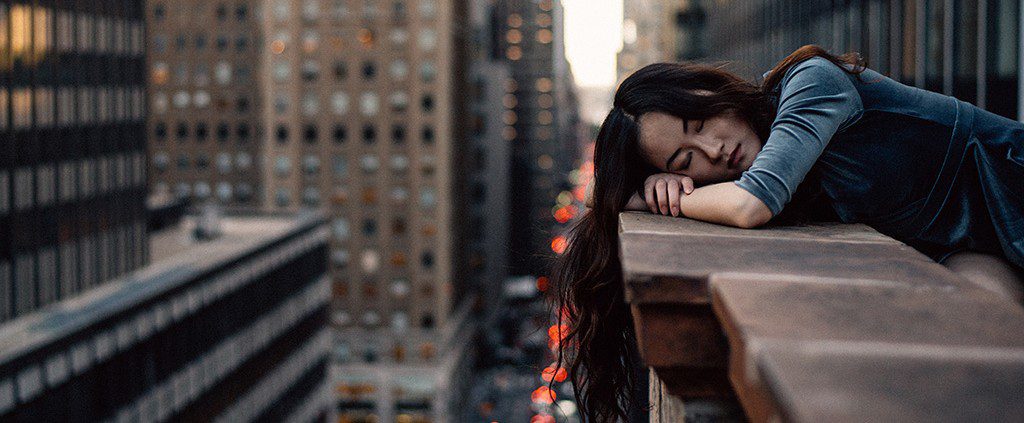
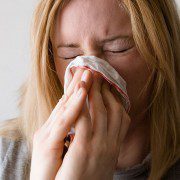

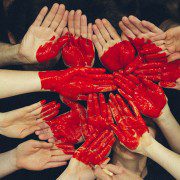
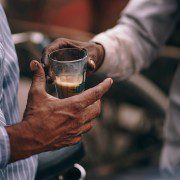
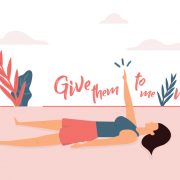
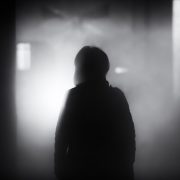


I love your story! Thank you for sharing Abby!
We know Abby and she loves the Lord with all her mind,heart and soul. It was a very good testimony of how she came to the Lord through her Aunt, who did not give up on Abby.
Thanks for these encouraging words Pam and Colin!